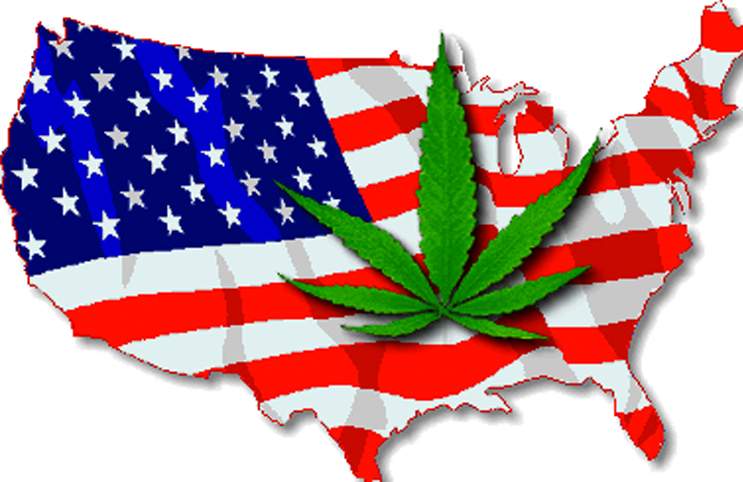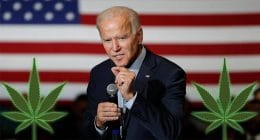Report Predicts 18 States Will Legalize Pot by 2020
Whether that pans out depends on Colorado, cash and the federal government
A recent report anticipates that involve 18 states in our nation will have legalized recreational cannabis in the next five years, a big boost from the four states that as of now have or are in the actions of creating legal markets for pot.
The description, set to be released in February from ArcView Market Research, a firm that connects investors with cannabis-related businesses, was backed by marijuana-industry groups and has a pro-legalization inflection. But their answer is not simply self-serving expectations.
e map has a lot of overhang with the areas where the Marijuana Policy Project (MPP), the group that aided the catapult of legal weed in Colorado, already has employers on there feet preparing and strategies for legalization votes over the next two years. Yet MPP is a bit more discreet in its outlook: the group believes 12 states could accompany Colorado, Washington, Oregon and Alaska in allowing recreational cannabis by 2017. Unlike ArcView, they’re not putting there eggs in one basket on legalization taking place in Montana, New Jersey or Connecticut over the next few years, according to spokesperson Morgan Fox. He says they’re applying current efforts in Arizona, California, Maine, Massachusetts and Nevada. They believe Texas is a yes as an outside possibility.
In the report, ArcView claims that “2014 will be remembered as a year when … a sense of confidence about civil legalization became conventional knowledge among elected administrators and the general public.” But the concern and the feelings of the electorate are far from delta with. In November, Gallup released a poll released that most Americans favor legalization. But it’s reduced majority of 51%, down from 58% in 2013, with many traditionalist still hesitate at the concept.
As with abundance of other political concerns, how quick at which states legalize marijuana is going to be determined by the rate at which donors are inclined to pour funds into elections and lobbying. In 2014, casino magnate Sheldon Adelson proved that there is a Republican with a hefty income willing to invest big to defendt against legalization. In Florida’s midterm election, voters considered an amendment to legalize medical marijuana, and Adelson spent close to $5.5 million to defeat the measure. It was declined by a 2% margin, it was close being short of the 60% required to pass.
Meanwhile, legalization enthusiast have lost dependable investors such as Peter Lewis, the chairman of Progressive Insurance who died in 2013. By, one evalutaion he had spent $40 on legalization battle since the 1980s. His associates have been rushed to fill the funding gap left by Lewis. In Florida, the actions to legalize medical marijuana was largely financed from a certain individual, personal-injury lawyer John Morgan, who was helping hand with about $4 million in funds. He has promised to try again in 2016, but legalization enthusiasts battling for reform in other parts of the nation can’t naturally rely on his efforts. MPP’s Mason Tvert states that while funds are obviously valued for their cause, “there’s no one individual who is going to be responsible for passing these measures.”
Two other aspects will be curtail to identifying: whether the federal government still keeps its distance from state trial with legalization (which federal law stills deems illegal), and even if states with existing legal exchange encounter any significant issues.
In Colorado, for instance, groups are preparing to defend a political battle concerning edibles, which have led to children who mistakenly ate them being hospitalized. One of those groups is Smart Colorado, which involves parents with worries about the pace at which pot laws have been liberalized. “We’re looking out for public safety and our kids,” founder Gina Carbone told TIME in an earlier report about edibles regulations, “not just expanding this huge market.” According to the recent deatils, legal weed yielded $2.7 billion in retail and wholesale sales in 2014.
Tvert states there’s also a good chance of an “unexpected event” that could curb or expand their source, like an endorsement from a leading, mainstream celebrity or a conspicuousness circumstance that could set delays for the movement inevitably holding it back. “A big part of this is really optics,” he says.
https://time.com/3682969/pot-legalization-2020/
MAPH Enterprises, LLC | (305) 414-0128 | 1501 Venera Ave, Coral Gables, FL 33146 | new@marijuanastocks.com











1 comment
“By, one evalutaion he had spent $40 on legalization battle since the 1980s.”
That was nice of him to pitch in.